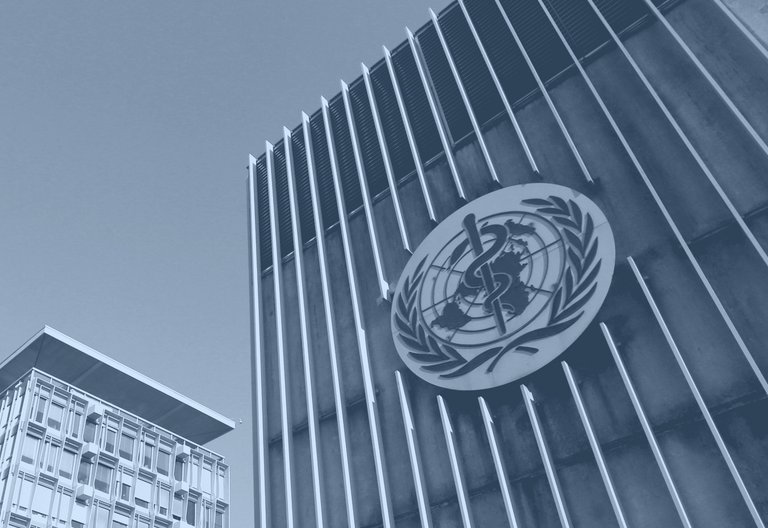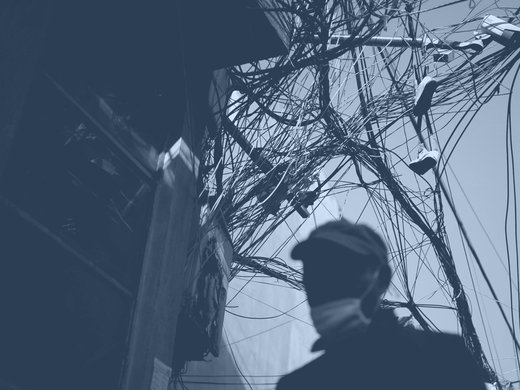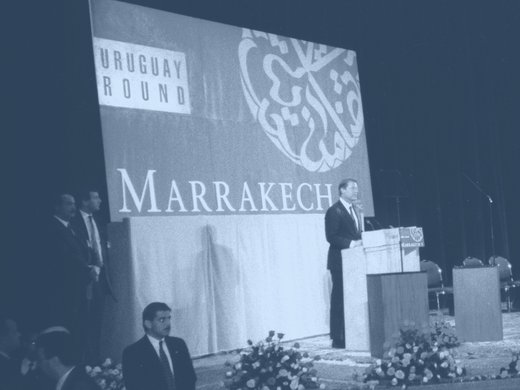Geopolitics and the WHO
Since the early months of 2020, a “great powers” proxy war has been raging between the United States and China over the coronavirus (COVID-19), and engulfing the World Health Organization (WHO). In May, things came to a head. On May 29, US President Donald Trump announced in the Rose Garden at the White House that “we will be today terminating our relationship with the World Health Organization and redirecting those funds to other worldwide and deserving, urgent, global public health needs.” According to Trump, China had exerted undue influence on the organization. As of this writing, a formal notification from the United States is still outstanding, and the legal process is unclear. No country has ever left the WHO.
This is not the first time the WHO has been mired in great power politics. Given its nature as an intergovernmental organization, geopolitical shifts have always been a feature of its functioning. Yet the WHO was not prepared for the COVID‑19 virus to become so deeply politically divisive. Unlike previous outbreaks of coronavirus disease (SARS and MERS), H1N1 (the swine flu), or Ebola, COVID-19 has become a political accelerator — at the national level, the international level and for the WHO.
Give the WHO Power and Pay for It
The COVID-19 pandemic has made clear that the WHO — the agency tasked, by its constitution, “to act as the directing and co-ordinating authority on international health work” — can no longer be kept on a shoestring budget by its member states, with only 20 percent of its work funded reliably through assessed contributions. How can 194 countries agree that the organization they own and govern is weaker and poorer than some of the new multi-stakeholder organizations they helped set up? It is not healthy for any organization of this size to have just 20 contributors fund 75 percent of the program budget. That imbalance allows undue influence.
There is no other way: if we want a strong WHO that can do its coordination, normative, standard-setting and emergency work independently, then we must give it power and we must pay for it. But the emotive appeal by President Emmanuel Macron of France last October “to deliver the next generation a better and healthier world, fighting inequality and strengthening social justice” was made on the occasion of the replenishment of the Global Fund to fight other epidemics — AIDS, tuberculosis and malaria — not in the context of budget discussions at the WHO.
If the United States leaves, there will need to be an emergency response by an alliance of countries and other stakeholders to cover the financial gap. But an even higher priority for all countries is to start anew together by agreeing to doubling — at least — the assessed contributions, so that all key WHO functions are sufficiently financed. Three additional actions are slightly longer term: introducing a new, more balanced approach to assessment; finding a way to address the fragmentation and competition in global health financing; and reflecting on how common goods are to be financed reliably. These agendas go far beyond health ministers.
Move beyond the Sovereignty Paradox
Politically, the member states of the WHO now have a historic opportunity to build a WHO where countries work together on the principle of “smart sovereignty.” The WHO, too, is subject to the sovereignty paradox, a theory that countries reach weak agreements because they want to protect their sovereignty. But these agreements come at a cost. As economist Inge Kaul has described it, “rather than securing their policymaking sovereignty countries are losing it, bit-by-bit, with each further crisis.” The lack of cooperation and the policy chaos following the COVID-19 outbreak is a case in point. Maybe countries have learned from it.
The push by Prime Minister Scott Morrison of Australia to give the WHO the same powers as weapons inspectors to forcibly enter any country addresses the need to overcome the sovereignty paradox in support of an effective, transparent and fair international cooperation, but it equally applies to many of the other global goods the WHO is charged to deliver — the fight against antimicrobial resistance, for example, or air pollution. COVID-19 showed clearly that global health is not about health in developing countries only; it is about all countries. Rich countries now realize they need the compulsory licensing flexibilities of the Agreement on Trade-Related Aspects of Intellectual Property Rights as much as developing countries do. Federica Mogherini, the former high representative of the European Union for foreign affairs, described this move well: in an age of vulnerability, “solidarity is the new selfish.”
It is the member states of the WHO that must sign up to implement the three political priorities highlighted during the recent World Health Assembly: the need to work collectively, to empower the WHO and to ensure common global goods. Possibly these need a new framework or consensus agreement for this age and geopolitical situation, along the lines of the milestone Alma-Ata Declaration on primary health care.
Use the New Power Dynamics to Create Change
The European Commission, which now defines itself as a “geopolitical commission,” has quickly become one of the most important partners of the WHO politically and financially.
Germany, one of the WHO’s most reliable partners, will take on the EU “corona presidency” starting July 1, 2020. The European Commission and Germany were among the first to respond to the Trump announcement to leave WHO. Together, they will play a major role in setting new agendas at the WHO.
Austria has initiated a group calling themselves “the first movers” — countries that acted quickly against the pandemic and flattened their curves of infection — including Australia, Denmark, Greece, Israel, Singapore and New Zealand.
Australian officials are in dialogue on the post-pandemic future with a group of countries that includes India, Japan, South Korea and Vietnam. Switzerland, too, has announced a group with smaller states from around the world to strengthen multilateralism for global health.
There are expectations that India — fourth on the Lowy Institute Asia Power Index, one rank below Japan — will take on a more proactive global health diplomacy role, particularly as it presently chairs the WHO executive board. Costa Rica and Chile took the initiative to launch the COVID-19 Technology Access Pool with the WHO. At least 37 countries have signed up to support this initiative aimed at making vaccines, tests, treatments and other health technologies to fight COVID-19, and to make the pool accessible to all. The African Union is expanding its health activities and is a strong voice — through the South African presidency — in the COVID-19 initiatives. Saudi Arabia is trying to save the strong health commitments of the G20 leaders’ meeting.
Both financially and strategically, the opportunity for a strong WHO lies in a new power dynamic that is seeking to establish an alternative to the US-China standoff. All regional power blocs — the European Union, strategic players in Asia and in Africa — are keen to balance the roles of both the United States and China. There is clearly no interest in handing over the rulemaking powers of the WHO — which are so critical, especially for middle powers, small states and the developing world — to China. But there is also little appetite to hand it back to the United States, not least because — as many in the know will concede — it has frequently weakened the WHO’s normative and standard-setting powers (think tobacco, think pharma, think sugar).
Whether the United States will finally leave depends on many factors: the legal interpretation, multilateral diplomacy, the relevance for the Trump campaign and, of course, the elections in November. An administration under Joe Biden would clearly remain – but, even in a second Trump term, the charge of undue influence might by then have lost its political rallying power. Already Trump’s security adviser has signalled that the United States “would consider coming back” as a member to the WHO if it enacted new reforms and ended the “corruption and reliance” on China. There is always a back door and room for reinterpretation.
No “Back to Normal”
Geopolitics will define global health over the next decade, and good use must be made of the new political dynamics to address the most urgent global health governance issues at hand: financing, authority and fragmentation. Maybe geopolitics will propel us toward a “cosmopolitan moment,” a point in time at which the global community comes together and creates new institutions and mechanisms that it has not otherwise been willing to introduce. The global health diplomacy challenge is to bind the centrifugal forces beyond the present narrative of the United States versus China. Global health is not a zero-sum game; there are too many other powers with a strong interest in a multilateral health system and a rule-based international order.
China will not “run” the WHO, but global governance will need to change fast to make the WHO strong. There should be no “back to normal” — even if the United States does stay when all the chips are down.





